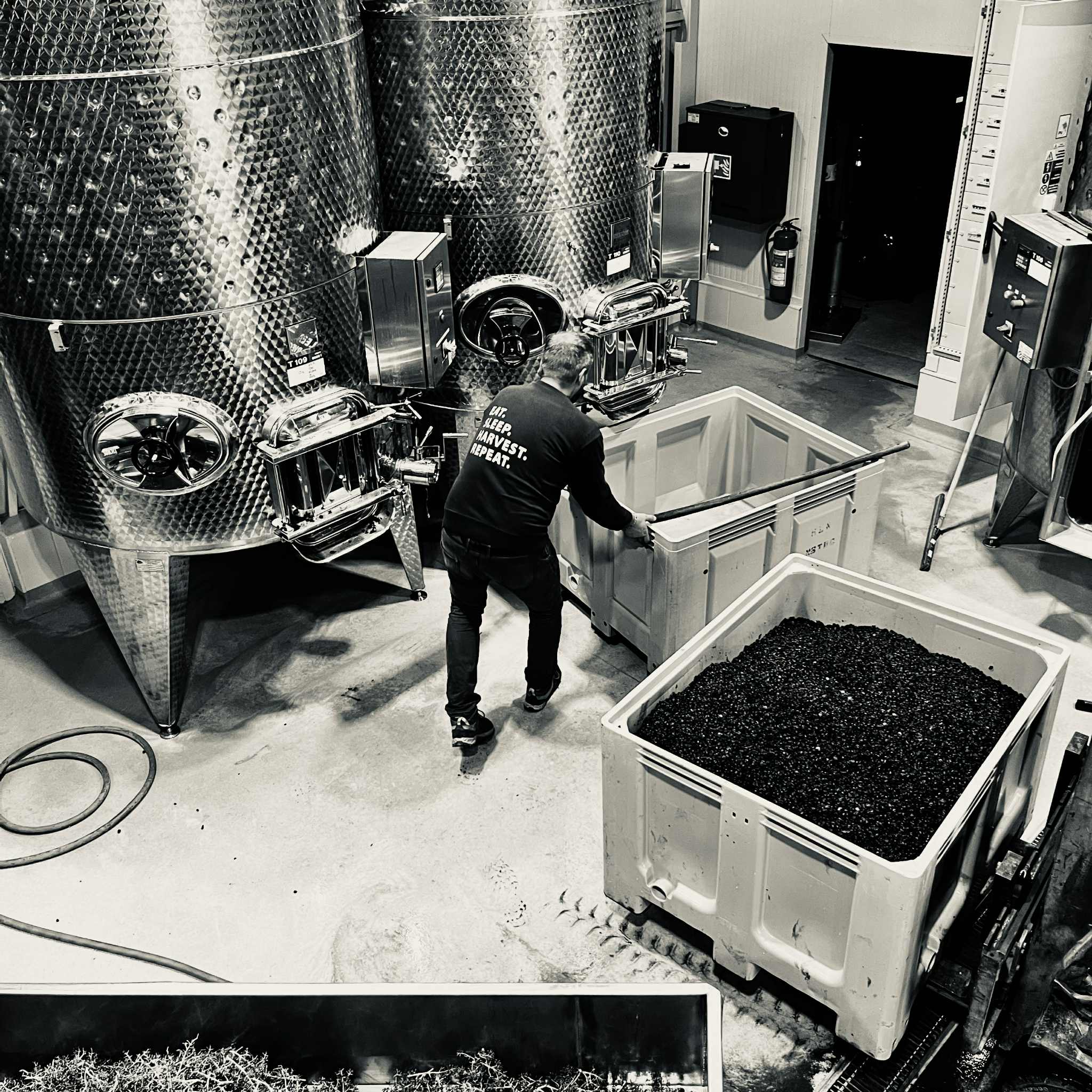
Eat. Sleep. Harvest. Repeat.
28.10.2025
The king is dead, long live the routine! I don't know if this famous (para)phrase is appropriate, but it feels like a fitting summary of the fact that the 2025 vintage is now history and our eyes are already set on 2026. As I like to say: the end of the harvest means the beginning of the next one. And there's lot to be done.
Of course, this does not mean that we are not enjoying the wines of this past vintage and feeling a great deal of satisfaction. It was a long growing season; nature took its time this year, but fortunately, we already know that good things take time.
That was our creed for this harvest. Persevere, wait, and many things will resolve themselves. I don't mean being passive, but not being hasty. Instead, take a step back and look at things with fresh eyes the next morning. Don't jump to conclusions. With age, this skillset naturally grows stronger.
Thanks to all this, and especially thanks to the weather and natural conditions, this year's harvest lasted almost two months—we started on September 1 and finished on October 21. We didn't harvest every day; we often waited until the grapes were in optimal condition, for a total of 26 harvest days.
We managed to bring most of the grapes home in perfect condition, but of course, there were some fuckups, which are part of the process. Some grapes went astray; botrytis developed where it shouldn't have; some grapes weren't even harvested because the quality was already off.
I would be lying if I said that everything was sunshine and rainbows. It wasn't, and it never is. But in the end, everyone on the team agreed that it was a successful vintage. Generally speaking, it will be more of a year for white wines. Wines that begin to clean up after fermentation reveal their shapes and they are beautifully linear, with a straight backbone and good finish. But it is too early to evaluate; we will assess the quality in five years, as Petr Kočařík correctly says in our interview.
And what lies ahead of us? Agriculture is largely routine-based work, because natural rhythms repeat themselves and our lives are subject to them. Many people seek escape from routine because they find it boring. It is seen as something bad. I like routine, at least in agriculture. It guides my life. I can easily find moments within it that are not routine at all. Every day.
Routine is more important than we often admit. It keeps us within certain boundaries. It keeps us focused on what we can excel at. This makes stepping outside of it all the more precious.
Our routine tells us that after the harvest, there is a lot of work to be done that we didn't have time for during the growing season. At the same time, we need to prepare the vineyards for winter, plow some areas, and leave others untouched.
We'll uproot about 2 hectares of vineyards that, from our current perspective, do not bear the fruit we want to harvest. At the same time, we have to prepare other plots where we will plant new vines next spring.
The never-ending maintenance of Chateau Nestarec is also calling for attention, yet again. And we are expecting many visitors who want to see it all for themselves. (Here's how to book an appointment, should you be curious too.) All this is accompanied by the quiet, no longer so regular sound of this year's wines slowly fermenting.
One more thing that awaits us, as the days grow shorter and shorter—more time for ourselves. For family, for reading, for lighting the fireplace, for meeting up with friends, and for travelling. These are precisely the moments that take us out of our routine. They are few and far between, but that makes them all the more precious and important.
Oh, and one more important thing about why this time of year is important and special to me. It's winter, and my palate craves red wine. If there were only one colour of wine in the world, for me it would definitely be red. I'm on Team Red.
Pour yourself a glass of good red wine and enjoy the winter!